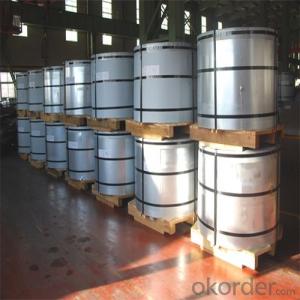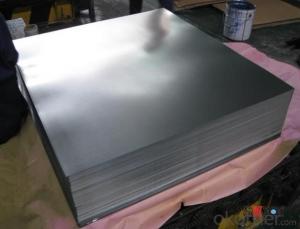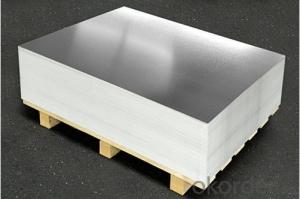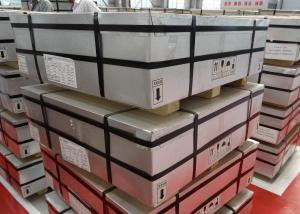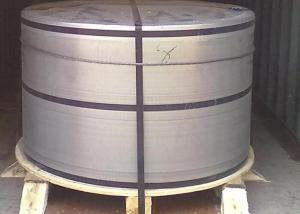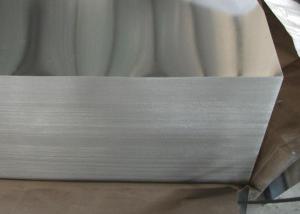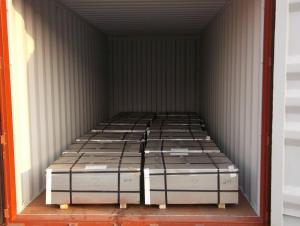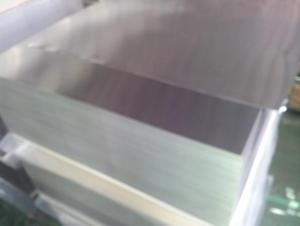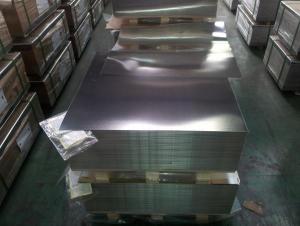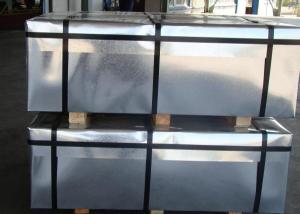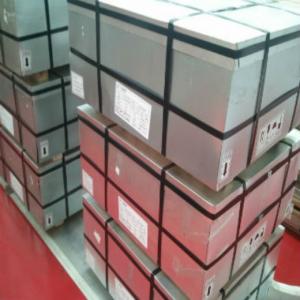Prime Quality TFS ( Tin Free Steel) for Can Cap
- Loading Port:
- Shanghai
- Payment Terms:
- TT OR LC
- Min Order Qty:
- 25 m.t.
- Supply Capability:
- 25000 m.t./month
OKorder Service Pledge
OKorder Financial Service
You Might Also Like
Item specifice
1.Structure of Prime Quality TFS ( Tin Free Steel) for Can Cap Description
Also known as chromed steel, tin-free steel (TFS) is obtained by coating the metal base (low-carbon steel) with an ultra-thin layer of metallic chrome and then with a chromium oxide layer.
The product complies with ASTM A-657 Specification and is manufactured with low current density (TFS-III) and is supplied only in coils of up to 12 metric tons.
2.Main Features of the Prime Quality TFS ( Tin Free Steel) for Can Cap
Chromium coated
Corrosion Resistant
Easier to recycle.
Sulphur Blackening Resistance: TFS has sulphur resistance properties, which can be used for canning protein- rich food such as fish.
Filiform Rust Resistance: Filiform is superficial corrosion of the base metal. TFS has a superior base metal which makes it corrosion resistance.
3.Prime Quality TFS ( Tin Free Steel) for Can Cap Images
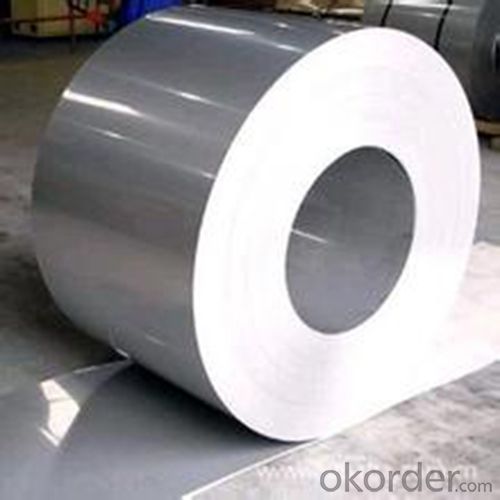
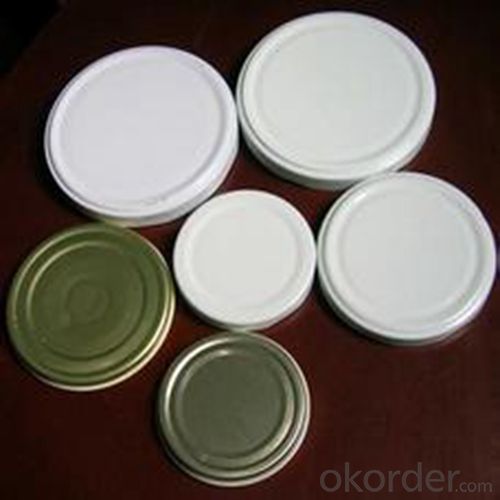
4.Prime Quality TFS ( Tin Free Steel) for Can Cap Specification
Thickness 0.14mm to 0.35mm
Width 500mm to 1200mm
Length : 500mm to 1200mm
Temper : T1 to T5, DR 7 to DR 9
Packaging Details: Seaworthy Packaging
5.FAQ of Prime Quality TFS ( Tin Free Steel) for Can Cap
-What is MOQ?
Our MOQ would be 25 tons.
- Do you only have prime quality TFS ?
We can supply both prime and second quality TFS.
- Q:Can tinplate be used for automotive components?
- Yes, tinplate can be used for automotive components. Tinplate is a type of steel coated with a thin layer of tin, which provides corrosion resistance and aesthetic appeal. It is commonly used in the automotive industry for various components such as fuel tanks, oil pans, and engine covers.
- Q:What are the different grades of tinplate?
- The different grades of tinplate include Single Reduced (SR), Double Reduced (DR), and Electrolytic Chromium Coated Steel (ECCS).
- Q:Can you tell me how to deal with the recycling of tinplate?
- The tin is magnetic, is easy to recycle scrap. Second, waste tin as scrap iron and steel melted, make steel containing a small amount of tin (less than 0.1%), to improve the performance of cast iron.
- Q:Can tinplate be used for signage?
- Yes, tinplate can be used for signage. It is a durable and versatile material that can be easily shaped, painted, and printed on, making it suitable for creating various types of signs. Additionally, tinplate is corrosion-resistant, which ensures the longevity of the signage, even when exposed to outdoor elements.
- Q:What are the different types of tinplate edge finishes?
- There are typically three main types of tinplate edge finishes: open, closed, and inward rolled. The open edge is the most common and leaves the tinplate edge exposed, while the closed edge is formed by folding the edge of the tinplate under itself for a more finished appearance. The inward rolled edge is created by rolling the edge of the tinplate towards the inside of the can, providing a smoother and safer edge.
- Q:What are the main challenges in tinplate canning process?
- Some of the main challenges in the tinplate canning process include ensuring the proper sterilization of cans to prevent contamination, maintaining consistent quality control to meet regulatory requirements, managing the speed and efficiency of the production line, and addressing issues related to can integrity such as dents or leaks. Additionally, the cost of tinplate material and the environmental impact of its production and disposal are also significant challenges that need to be addressed.
- Q:How does tinplate contribute to the performance of ammunition?
- Tinplate contributes to the performance of ammunition in several ways. Firstly, tinplate acts as a barrier between the ammunition's metallic components and the environment, preventing corrosion and ensuring the ammunition remains functional over time. Additionally, the smooth surface of tinplate reduces friction and enhances the flow of ammunition through firearms, improving the overall reliability and performance of the weapon. Furthermore, tinplate's strength and durability provide necessary protection to the ammunition during handling, transportation, and storage, ensuring it remains intact and ready for use when needed.
- Q:What are the different printing techniques used on tinplate?
- Some of the different printing techniques used on tinplate include lithography, offset printing, screen printing, and digital printing.
- Q:How has tinplate evolved over the years?
- Tinplate has evolved significantly over the years in terms of its production process, durability, and applications. Initially, tinplate was made by coating iron sheets with a thin layer of tin to prevent corrosion. However, as technology advanced, electroplating replaced the traditional hot-dipping method, resulting in a more efficient and cost-effective production process. Additionally, the development of various alloy coatings has further enhanced the durability of tinplate, making it more resistant to rust and damage. Moreover, tinplate has expanded its applications beyond traditional cans, finding its way into packaging for food, beverages, aerosols, and cosmetics. Overall, the evolution of tinplate has revolutionized the packaging industry, offering improved quality, versatility, and sustainability.
- Q:Can tinplate be used for high-speed packaging lines?
- Yes, tinplate can be used for high-speed packaging lines. Tinplate, which is a thin steel sheet coated with a layer of tin, offers excellent strength and durability, making it suitable for fast-paced packaging operations. Its smooth surface allows for easy printing and labeling, while its corrosion resistance ensures the longevity of packaged goods. Additionally, tinplate's ability to withstand high temperatures and its recyclability make it a popular choice for high-speed packaging lines in various industries such as food and beverage.
1. Manufacturer Overview |
|
|---|---|
| Location | |
| Year Established | |
| Annual Output Value | |
| Main Markets | |
| Company Certifications | |
2. Manufacturer Certificates |
|
|---|---|
| a) Certification Name | |
| Range | |
| Reference | |
| Validity Period | |
3. Manufacturer Capability |
|
|---|---|
| a)Trade Capacity | |
| Nearest Port | |
| Export Percentage | |
| No.of Employees in Trade Department | |
| Language Spoken: | |
| b)Factory Information | |
| Factory Size: | |
| No. of Production Lines | |
| Contract Manufacturing | |
| Product Price Range | |
Send your message to us
Prime Quality TFS ( Tin Free Steel) for Can Cap
- Loading Port:
- Shanghai
- Payment Terms:
- TT OR LC
- Min Order Qty:
- 25 m.t.
- Supply Capability:
- 25000 m.t./month
OKorder Service Pledge
OKorder Financial Service
Similar products
New products
Hot products
Related keywords
